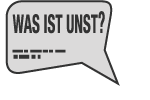Retrospect and Preview 2017/18
‘A modern classic.’ This was the judgment by Belgian state television of Milo Rau’s play ‘Empire’ on the occasion of its guest appearance at this year’s Kunstenfestival in Brussels. The concluding play of the ‘Europe Trilogy’, which was nominated for the Berlin Theatertreffen and invited to the Schweizer Theatertreffen, and described as ‘the theatre of Euripides reconceived for the present’ by the Neue Zürcher Zeitung, continues its triumphal march: from Wednesday, it will be competing in the competition for the Mülheim Dramatists’ Award for the best German-language play of 2017. ‘Empire’ is thus the first work in the history of the most important German playwrights’ award that doesn’t contain a single German word – a jury decision as gratifying as it is courageous. Following the Swiss showing of top plays and the Mülheim Theatertage, ‘Empire’ will travel to the German-French festival Perspectives and the Epidauros Festival in Athens, among others, before it becomes a part of the repertoire of the National Theatre Ghent, the directorship of which Milo Rau will take in 2018.
For IIPM’s preceding production ‘Five Easy Pieces’, too, the current season has drawn to a successful close. After having been invited to the Dutch and Belgian national theatre festivals and honoured with the Belgian Critics’ Award, the play, which has been shown in twenty countries to date, won the 3sat Award at the Berlin Theatertreffen. Deutschlandradio Kultur summed up the guest performances of the Ghent children’s play at the Berlin showcase of the best German theatre as ‘one of the truly superb invitations in recent years.’ The production even moved the blogger of the Theatertreffen ‘to believe in theatre again,’ while the English critic Andrew Haydon called it ‘lifetime top-five outstanding’. After Berlin, ‘Five Easy Pieces’ will travel this season to the Impulse Festival in Cologne, to Madrid and to Ljubljana. Beginning in the 2017/18 season, a second version of the piece is to travel the world parallel to the first. The programme for next season includes a South and North American tour, among other stations.
In addition, after a preview tour through the Democratic Republic of Congo, the much-anticipated film ‘The Congo Tribunal’ will come to European cinemas in autumn 2017. Parallel to this, in cooperation with ARTE, ZDF and Swiss Television, a multimedia platform and an interactive computer game are being created based on this ‘most ambitious political theatre project ever staged’ (The Guardian). Also in autumn 2017, following ‘The Congo Tribunal’, IIPM will present a further large-scale political project, ‘The General Assembly’. In November, delegates from around the world will convene in Berlin to challenge the newly elected German parliament – as representatives of those who are affected by German policies yet have no political voice. Here, a global parliament is to take the place of a national parliament: the first world parliament in human history.
Rau and his team are also developing three new plays for the 2017/18 season: In October 2017, the revolution panorama ‘1917’ (with the 2017 winner of the Hans Reinhart Ring, Ursina Lardi, as Lenin) will be staged at the Schaubühne in Berlin. In February 2018, a ‘Joan of Arc for our time’ (Season Program of Residenztheater) will be brought to life at the Residenztheater in Munich. Finally, in May 2018, the theatre essay ‘Geschichte des Theaters’ (History of the Theatre; with Johan Leysen, Sara de Bosschere and Sébastien Foucault) comes to the stage in cooperation with the Théâtre National Bruxelles, the Schaubühne in Berlin, the Festival d’Avignon, Prohelvetia and the National Theatre Ghent, among others.
Meanwhile, Milo Rau has outlined his personal ‘Poetik eines global gedachten Menschheitstheaters’ (Poetics of a Globally Conceived Theatre of Humanity) in the framework of the ‘Saarbrücker Poetikdozentur für Dramatik’ (Saarbrucken Poetry Lectureship for Drama), which ended last Monday. The three lectures will be published early next year by Alexander Verlag of Berlin under the title ‘Geschichte des Theaters’ (History of the Theatre), enriched with the text from Rau’s eponymous performance. Next season, three further publications will additionally illuminate the work of the ‘Bertolt Brecht of the 21st century’ (art.tv): Diaphanes Verlag of Zurich will publish a collection of Milo Rau’s conversations, theoretical essays and manifestos under the title ‘Wiederholung und Ekstase’ (Repetition and Ecstasy; edited by Rolf Bossart and Dieter Mersch). Two volumes from the publisher Verbrecher Verlag, ‘The Congo Tribunal’ and ‘1917’, as well as the re-issued ‘Europa Trilogie’ (Europe Trilogy) illuminate Rau’s work from a ‘global popular theatre’, which the author and designated director of the NTGent himself sketches in two current, programmatic interviews in the newspapers Le Soir and the Tages-Anzeiger .


